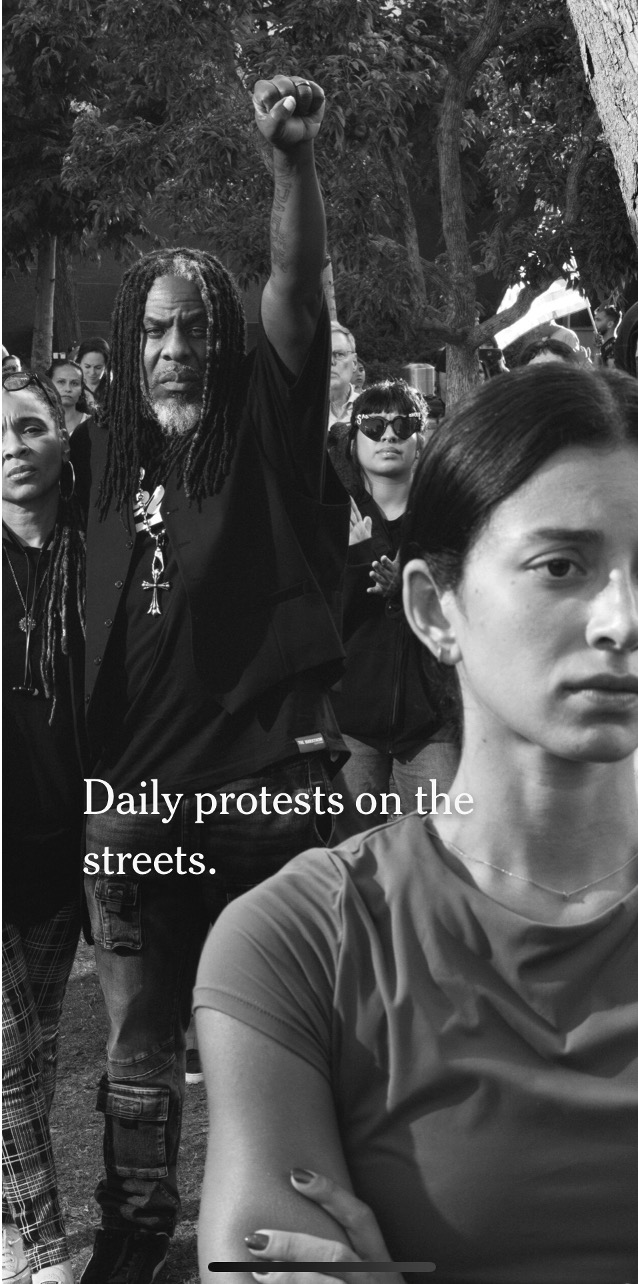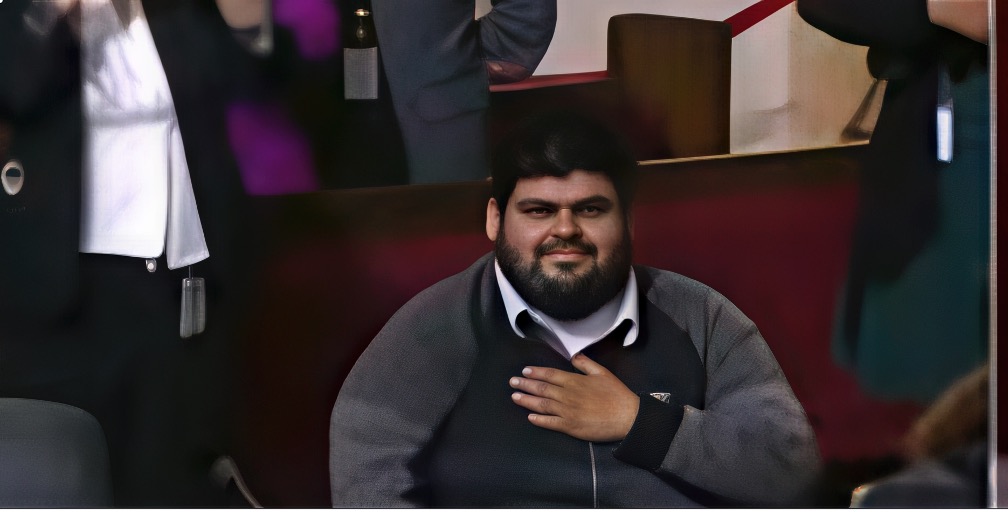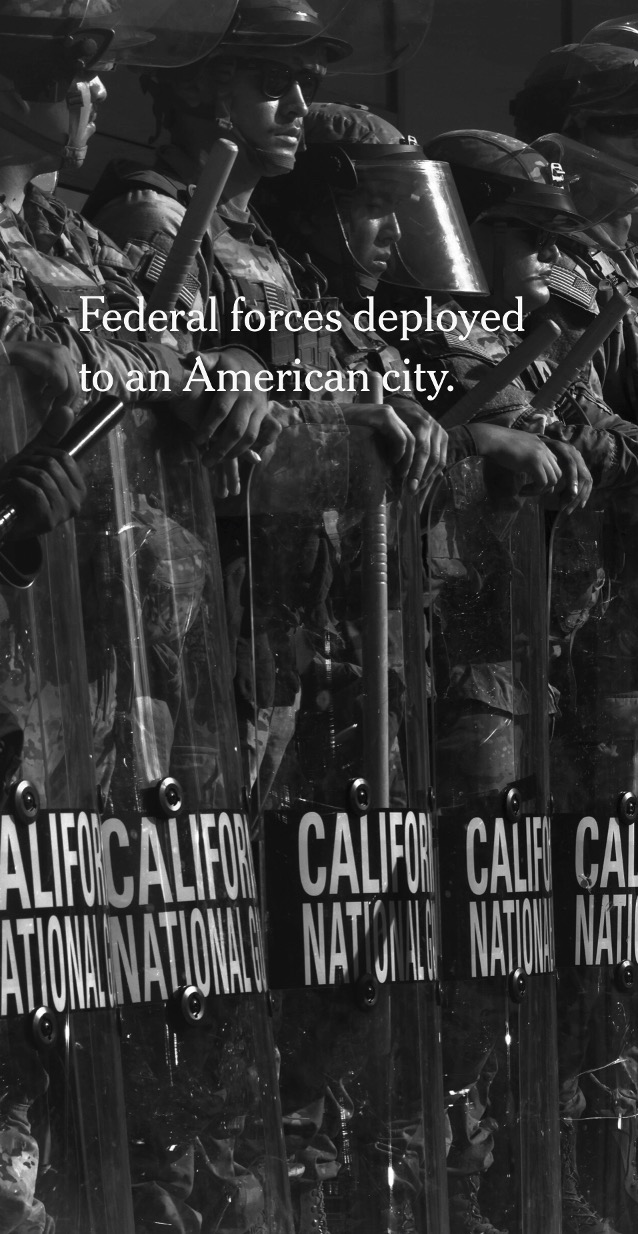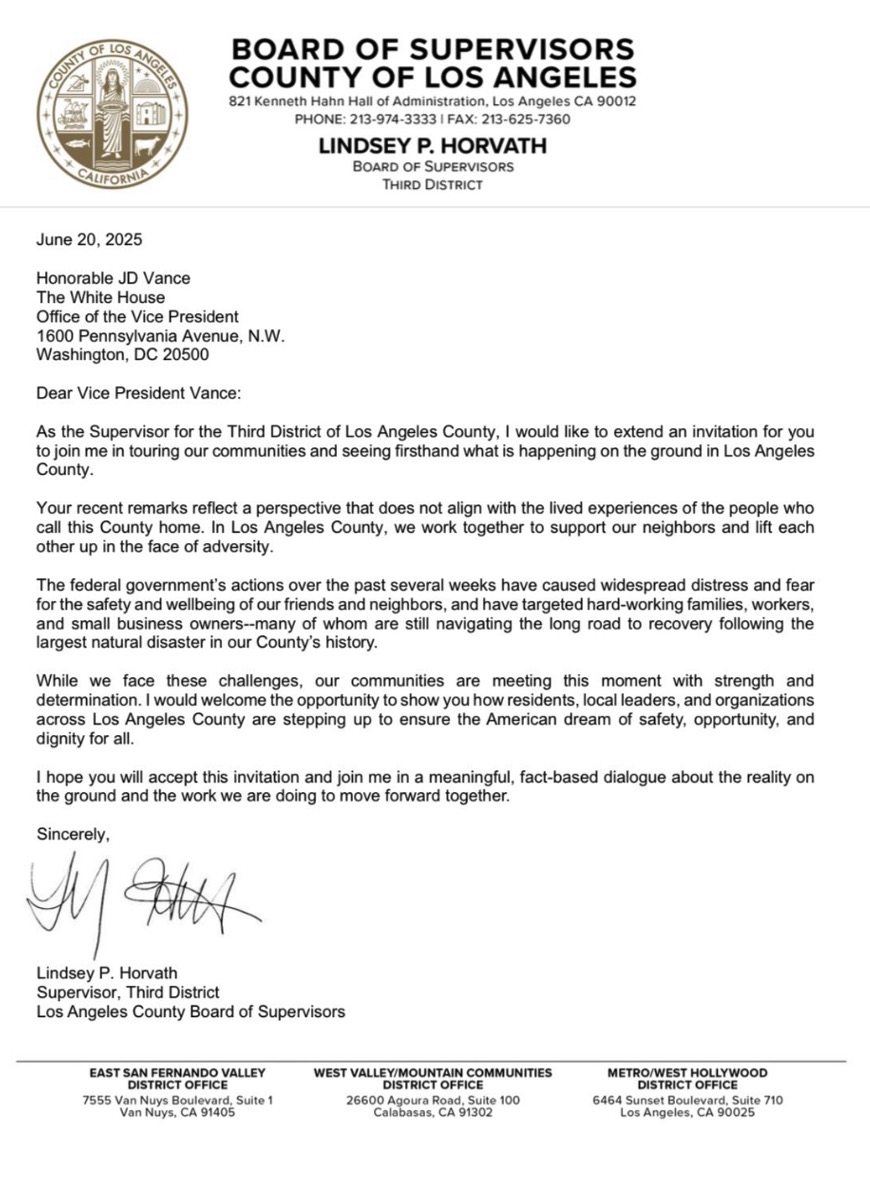Comments
ERIC PREVEN’S NOTEBOOK - “I call on all parties to exercise maximum restraint, de-escalate and return to the negotiating table,” President Emmanuel Macron of France said Monday on X. “The spiral of chaos must end.” Qatar’s Interior Ministry stated that the situation in the country is “stable” and “there is no cause for concern.” In a statement on social media, the ministry also warned residents against sharing any information “not issued by official sources.”
Smart Speaker: Didn't Qatar host the FIFA World Cup in 2022, becoming the first Middle Eastern country—and the first in the Arab world—to do so?

The New York Times offers stylized coverage.
Jonathan Groat, Deputy City Attorney: Mr. Preven, you are off-topic.
Smart Speaker: It was also the first World Cup held in November–December rather than the traditional summer months, due to Qatar's extreme heat. The tournament drew global attention not just for the matches but also for widespread scrutiny over human rights issues, migrant labor conditions, and the staggering cost of infrastructure, estimated at over $200 billion--
Still, we are thrilled to welcome the world to Los Angeles for the 2026 FIFA World Cup!
Yes, even as the world is inflamed with conflict, climate collapse, and the occasional censorship directive, we remain committed to providing a joyful, world-class experience for fans of every nation, many of whom are currently at war with each other.
The global community may be unraveling, but here in Los Angeles, we’re stitching together banners, activation zones, and branded hydration stations faster than you can say “regional instability.”
We believe in the power of sport to unite people—if only temporarily, and ideally in places with strong Wi-Fi and enhanced security patrols. Our local youth are already preparing drones at local rec centers, and our seniors are staying cool inside, where it’s safe. Inside Safe.
The spiral of chaos must end, said President Macron. And we whole heartedly agree! Or at least a temporary cease fire to sell out all venues.
We look forward to welcoming the world in 2026. Let the games begin. Please.

Staff with at least one hand on the heart...
You May Now Exit the Chambers
Wednesday, June 18, 2025 — the kind of meeting that makes you question everything, including whether the microphones at City Hall are calibrated for screams or just polite despair. The agenda was technically there, sure—but the real action was at the podium. Activists, tenants, and exhausted watchdogs lined up to deliver what the council politely calls “public input” and what any sentient observer would call: a reckoning.
The housing advocates came with stories—nightmarish conditions in HACLA-backed buildings managed by the vaguely hopeful-sounding “Hope for Affordable LA.” Think broken elevators, locked mailrooms, sexual assaults, missing security, and an absentee landlord model that makes WeWork look organized. The Stay Housed LA contract, approved in April, still hadn’t been activated. Maybe someone lost the paperwork under a stack of feasibility studies.
And speaking of techno-dystopias: the IKE digital kiosks. These oversized ad-sticks disguised as “wayfinding tools” triggered a shouting match between labor reps, neighborhood councils, and privacy advocates. The Chamber and IBEW praised the kiosks as free money and civic modernization. The rest of us smelled surveillance expansion, shady procurement, and Councilmember McOsker’s ghostwritten lobbying résumé blinking on the screen like a low-resolution error message.
But nothing stirred the crowd like Special Item 1: a surprise $5 million gift to LAPD for unbudgeted overtime. John Lee called it reimbursement for “unexpected costs” tied to ICE protests. Several speakers called it what it was—gaslighting with a line item. You can’t pepper-spray peaceful protestors on a Wednesday and bill us for it on Friday. Or... apparently you can. The motion passed 13–2, with Hernandez and Soto-Martínez dissenting while the rest looked at their shoes.
Also missing from the chamber: telephones. Still. The war on remote public comment continued, with Council President Harris-Dawson pretending that pre-recorded video submissions are the same thing as showing up live. That’s like saying a screensaver is a conversation. The phones are off. Democracy is on mute.
Then came Friday.
TGIF. And Cheech.
The June 20 meeting arrived like a tone shift in a bad musical. Suddenly, the protests were gone. In their place: a tribute to Cheech Marin, who was gracious, funny, and—as Councilmember Soto-Martínez reminded us—a cultural icon who knew how to resist with style.
The council lapped it up. One by one, they popped up with glowing remarks, many reading directly from the Please Don’t Sound Whitewashed packet. Cheech, you taught me to laugh. Cheech, you taught us how to be seen. Cheech, your museum changed my life. It was heartfelt, it was sweet—and it was suspiciously close to a grant application. One wondered quietly: did Cheech’s museum in Riverside get the same sweetheart taxpayer land deal as George Lucas’ floating storyboard in Exposition Park?
Smart Speaker: Also, can we ask Cheech if he can help place the Primo Villanueva piece with a Spanish-language platform? I’ve tried diligently—
Jonathan Groat, Deputy City Attorney: Mr. Preven, you are off-topic.
Dissolve: Int: Los Angeles City Council Chambers. Late afternoon.

Welcome to Los Angeles.
The ceremonial portion has just wrapped. Cheech Marin smiles graciously, posing for the last of many selfies. The applause fades.
Council President Marqueece Harris-Dawson beams.
Marqueece Harris-Dawson, President: Thank you again, Mr. Cheech Marin, for your humor, your art, and for showing us how to hold power accountable… with style. Groat, take it away.
Jonathan Groat, Deputy City Attorney: Thank you, Mr. President. A few announcements. Before we begin public comment, I must advise members of the public that some speakers may say things that are offensive, disturbing, or otherwise objectionable. Members of the audience are not required to remain in the chambers during this portion of the meeting. If you would prefer, you may step outside or use headphones.
The Council does not endorse or condone such remarks, but it must allow them to comply with the law. ”
A crackle of feedback. And then—clarity. A new voice.
Smart Speaker: Thank you, Mr. President. Please cut Mr. Groat’s microphone for a moment.
(beat) Mr. Groat, if you interrupt the public warning again, you will be eligible for removal under Rules 7 and 12. This is your first and final warning.
To the rest of you in the chamber—and to the smoke n scan watching from home—this is your content advisory. Not for profanity. Not for violence. For the staggering volume of bullshit you’re about to hear from your elected officials.
This warning is issued in advance of remarks deemed severely irritating, occasionally condescending, and, frankly, contraindicated for… yes, democracy.
You’ll hear talk of digitally-integrated kiosks from people who used to lobby for digital integration. That’s McOsker. You’ll hear equity-themed feasibility studies for bench distribution—convoluted ways to say: we’re not adding benches. That’s Raman. You’ll hear revolutionary calls to decriminalize feelings, often by the same folks criminalizing tents. That’s Hernandez. You’ll hear about multicultural excellence from the guy still walking around with a Vegas hush-money cloud over his head. Staffer B John Lee. You’ll hear endless explorations of “available tools,” none of which include the one labeled “stop signing dumb contracts.” Katy with a "Y" Yaroslavsky. You’ll hear lavish thanks to “the community” from President Harris-Dawson, right before he slips into a 94-minute closed session. And yes, you’ll hear that public safety begins with clean bathrooms—from the councilmember who padlocks the bathrooms and dims the lights. Hi, Traci!
And of course, ceremonial resolutions will fly by, abstentions go unexplained, and endorsements pop up for events that never happened. The performance is robust; the follow-through, imaginary.
If you would like to receive a text message when the bloviation ends, please see Sergeant Duarte or Sergeant Graciano at the rail, as they are happy to help. Standard messaging rates may apply. Okay. Groat, that's my warning, back to you.
A beat as Groat's microphone is activated.
Jonathan Groat, Deputy City Attorney: Mr. Preven, this is your first and final warning.
Smart Speaker: Hold his time. Hold his time. Mr. Groat, I just confirmed with the District Attorney that you are, in fact, eligible for removal.
We certainly want to hear from you and as many petty little tyrants as possible—but we’re going to let people quietly usher out now to avoid the incoming wave of sanctimonious blather. Don’t worry—we’ll restore your full time and yes, even you deserve “due process.”
And if at any point you require translation into any language, please notify us seventy-two hours in advance, per the Brown Act and basic common decency.
Translator: Which language?
Smart Speaker: I would suggest passive-aggressive legalese.
Translator: Señor Groat, conforme al protocolo informal, su presencia en este recinto es respetuosamente tolerada, aunque cada vez menos indispensable. Le solicitamos abstenerse de realizar intervenciones jurídicas teatrales, salvo en caso de una emergencia real o por solicitud de algún miembro del personal preocupado por una posible alteración del orden. Gracias por su comprensión
Smart Speaker: Thank you, gracias a todo. Ok, Fauble recommends letting Groat speak. So let's put ten seconds on the clock.
Lights up.
Lights out:
The County held a public hearing on its budget. One word: sad.
Pearl A. Marshall criticized Los Angeles County officials in writing for failing to plan financially for the massive sexual misconduct settlements tied to decades of abuse in the Probation and Foster Care systems. She pointed out that the County is self-insured and covered by CJPIA, yet seemingly set aside no funds despite knowing the risks. Marshall called for firings and a full audit, citing gross negligence and a betrayal of the public trust.

A one-signature letter from Supervisor Lindsey P. Horvath.
Executive Officer: Our next speaker is Eric Preven.
Smart Speaker: Thank you. Supervisors, I appreciate the reference to our values because this isn’t a funding issue. It’s a moral one. So, thanks for your lovely comments about the safety net. Deeply moving.
Marina del Rey brings in over $50 million a year from leaseholds. Just two parcels—Neptune Marina and PCH Beach Associates—brought in $160,925 in unbudgeted lease extension fees this year alone. That’s found money. No strings. No allocations. Just sitting there.
So here’s a wild idea: use it to keep the damn parks open. Staff Magic Johnson Park. Staff Wishing Tree. Staff something.
LA28 dropped $160 million on swim lessons. Great. How about Caruso and other Marina lessees—Zev’s buddies—put some philanthropy in addition to, not instead of, Horvath’s marine mammal PAC?
And don’t tell us the only option is hiring $85-an-hour DROP retirees to supervise teens on foam mats. Hire local kids. Train them. Pay them minimum wage—with pride. Let them lead their own neighborhoods through this blistering summer.
It’s going to be hotter than Hades. Seniors are trapped indoors. Kids are cooking on concrete. And you’re sitting on a yacht basin cash cow pretending you can’t find a couple of million bucks.
You found it. You just don’t want to spend it where people feel it.
Staff the parks. State the Profit.
Also, under the California Public Records Act, I’m formally requesting a breakdown of gross annual revenue and rent received by the County from each of its 20 golf courses over the past five years. Please include the name of the course, the operator, total revenue, rent or concession fees paid to the County, and any performance evaluations or audits during that time. Email works fine. So does paper. Either way, I’ll be waiting—in the shade, if available.
(Eric Preven is a Studio City-based TV writer-producer, award-winning journalist, and longtime community activist who won two landmark open government cases in California.)









